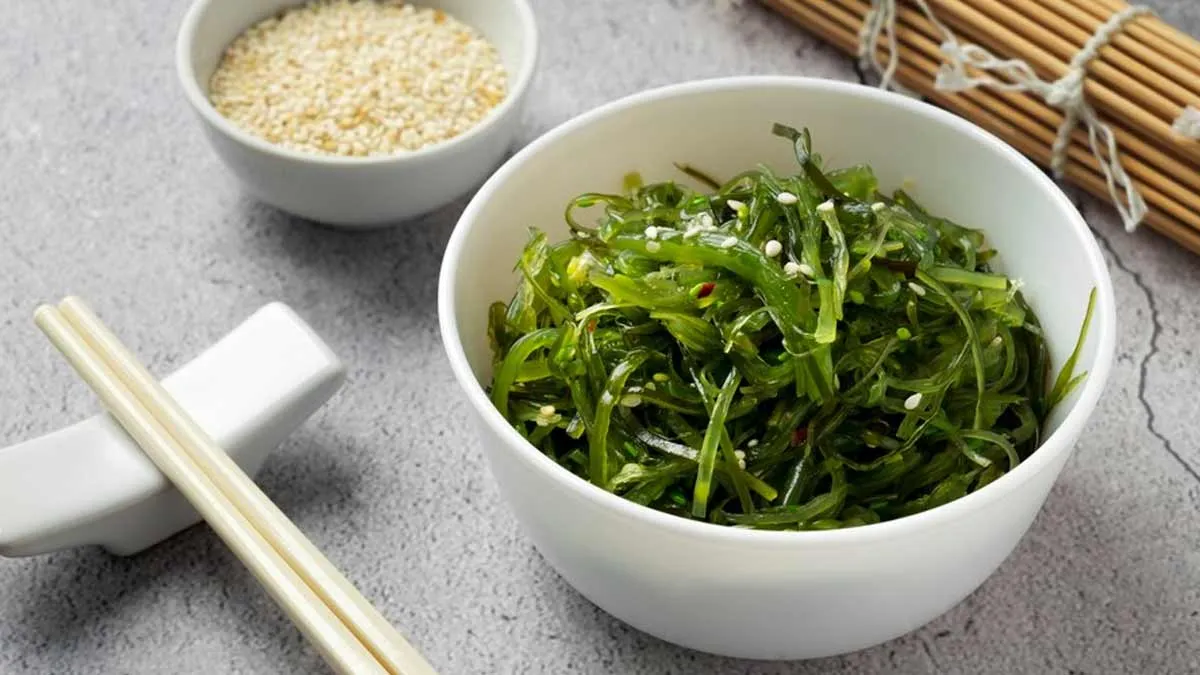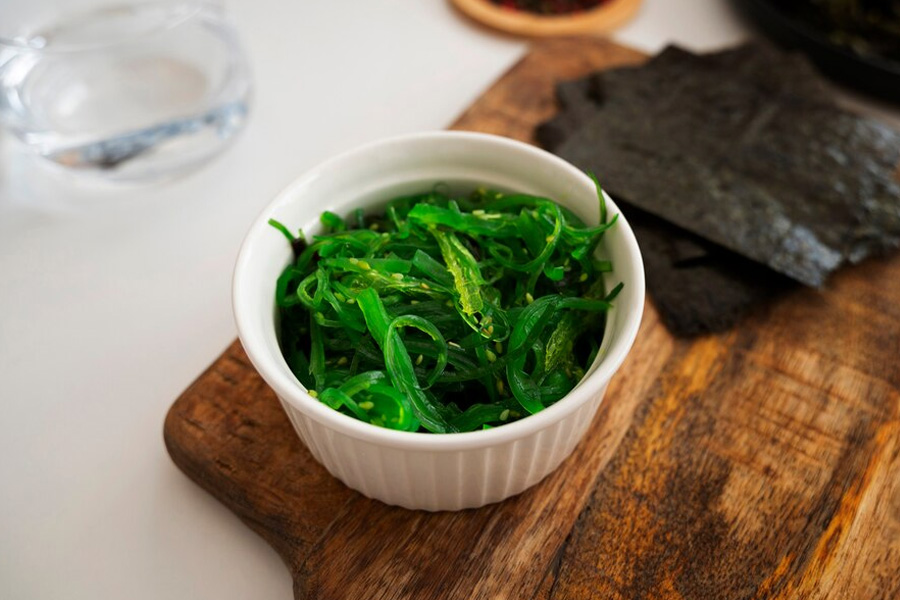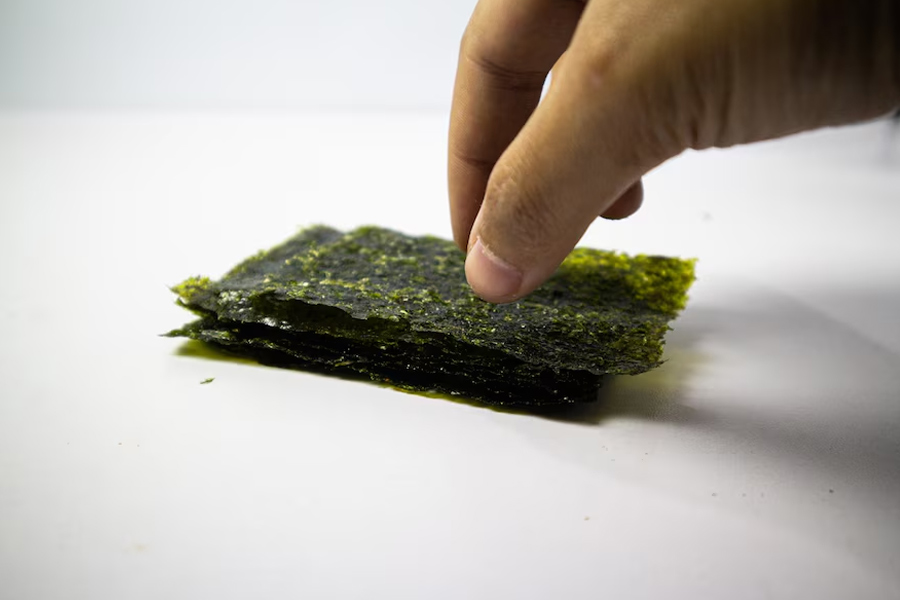
If you're a fan of Korean, Chinese, or Japanese culture and cuisine, you've definitely heard of seaweed or must have even tried it! Seaweed is actually algae and marine plants but can be consumed as a nutritious food. From sushi and gimbap to soups and snacks, seaweed can be incorporated into your diet in several ways. Studies suggest that it has many health benefits as it contains low amounts of calories, fat, and sugar. But while seaweed is full of goodness, the question that you should be asking yourself is how much is too much and whether excessive seaweed intake has any side effects on your health. Read to find out…
Table of Content:-
Also Read: Do You Know About Kelp? Know About The Health Benefits Of Consuming It
Benefits Of Seaweed

There are different types of seaweed, including nori, kelp, wakame, kombu, and spirulina. All of these varieties make it easier for a lot of people to include seaweed in their daily diet.
Seaweed is highly nutritious. It is a rich source of vitamins and minerals and is low in calories. According to a study published in the journal Marine Drugs, it contains nutrients, such as carbohydrates, protein, minerals, dietary fibres, iodine, and polyunsaturated lipids. Researchers indicated that the seafood also has a "wealth of bioactive compounds such as fucoidan, phlorotannins, fucoxanthin, and others," making it an antioxidant, anti-inflammatory, anti-tumour, anti-obesity, anti-coagulant, and anti-diabetes superfood.
Due to its high iodine content, seaweed is known to support thyroid health. Iodine is a mineral that helps the thyroid gland produce hormones that control the body's metabolism and other important functions such as growth and development, digestion, and rate of heartbeats.
Fibre-rich foods like seaweed also support digestive health, preventing issues like constipation and haemorrhoids. Moreover, fibre helps manage blood sugar and insulin levels. A 2018 animal study published in the Iranian Journal of Basic Medical Sciences found that rats that were fed algae extracts showed a decrease in the fasting blood glucose and triglyceride. Low triglyceride levels are also known to support heart health.
How Much Seaweed Should People Eat In A Day?

While seaweed has several health benefits, one must consume it in moderation.
Experts recommend eating 5–10 grams (dry weight) of seaweed per day for nutritional benefits. However, the amount of seaweed you can consume depends on the type of seaweed and your iodine intake:
Instant wakame: 5 grams per day
Kombu: 5–6 centimetres per day
Nori: 15 grams per day
Kelp, kombu, and dulse: These varieties contain high amounts of iodine and should not be eaten frequently or in high amounts.
According to The Office of Dietary Supplements (ODS) of the National Institutes of Health (NIH), the Recommended Dietary Intake (RDI) of iodine for healthy individuals varies by age. Infants from birth to six months require 110 mcg daily, increasing to 130 mcg from 7-12 months. Children aged 1-8 years need 90 mcg per day, while those aged 9–13 require 120 mcg. For teenagers and adults aged 14 and older, the daily intake is 150 mcg. Pregnant women are advised to consume 220 mcg, and lactating individuals need 290 mcg daily to meet their requirements.
Also Read: Harnessing the Power of the Ocean: Here Are The Nutritional Benefits of Sea Moss
Side Effects Of Eating Too Much Seaweed

Excessive seaweed consumption can lead to various health problems. Most seaweed types contain high levels of iodine. Therefore, if you consume too much of it, there's a chance of toxicity, increasing the risk of health conditions like hyperthyroidism. Hyperthyroidism, also known as an overactive thyroid, is a condition where the thyroid gland produces too much thyroid hormone, leading to symptoms like weight loss, nervousness, rapid heartbeat, and goitre.
Additionally, acute iodine toxicity, while rare and difficult to identify, can cause symptoms, including nausea, vomiting, and diarrhoea, and can progress to delirium, stupor, and shock, according to StatPearls Publishing.
Furthermore, it is crucial to watch out for the heavy metals that can be found in seaweed, since seaweed absorbs minerals and nutrients from the sea. While research suggests that the level of toxic chemicals in edible seaweed is generally low, a build-up of such harmful substances over time may cause health issues.
Conclusion
Seaweed is a healthy food. However, like any other food item, it should also be had in moderation. Excessive consumption of seaweed can lead to various health issues, including chronic conditions like hyperthyroidism. So, stick to the recommended intake, and if you have a pre-existing health condition or are pregnant, monitor your health status frequently and consult with a healthcare provider for any dietary changes.
Also watch this video
How we keep this article up to date:
We work with experts and keep a close eye on the latest in health and wellness. Whenever there is a new research or helpful information, we update our articles with accurate and useful advice.
Current Version